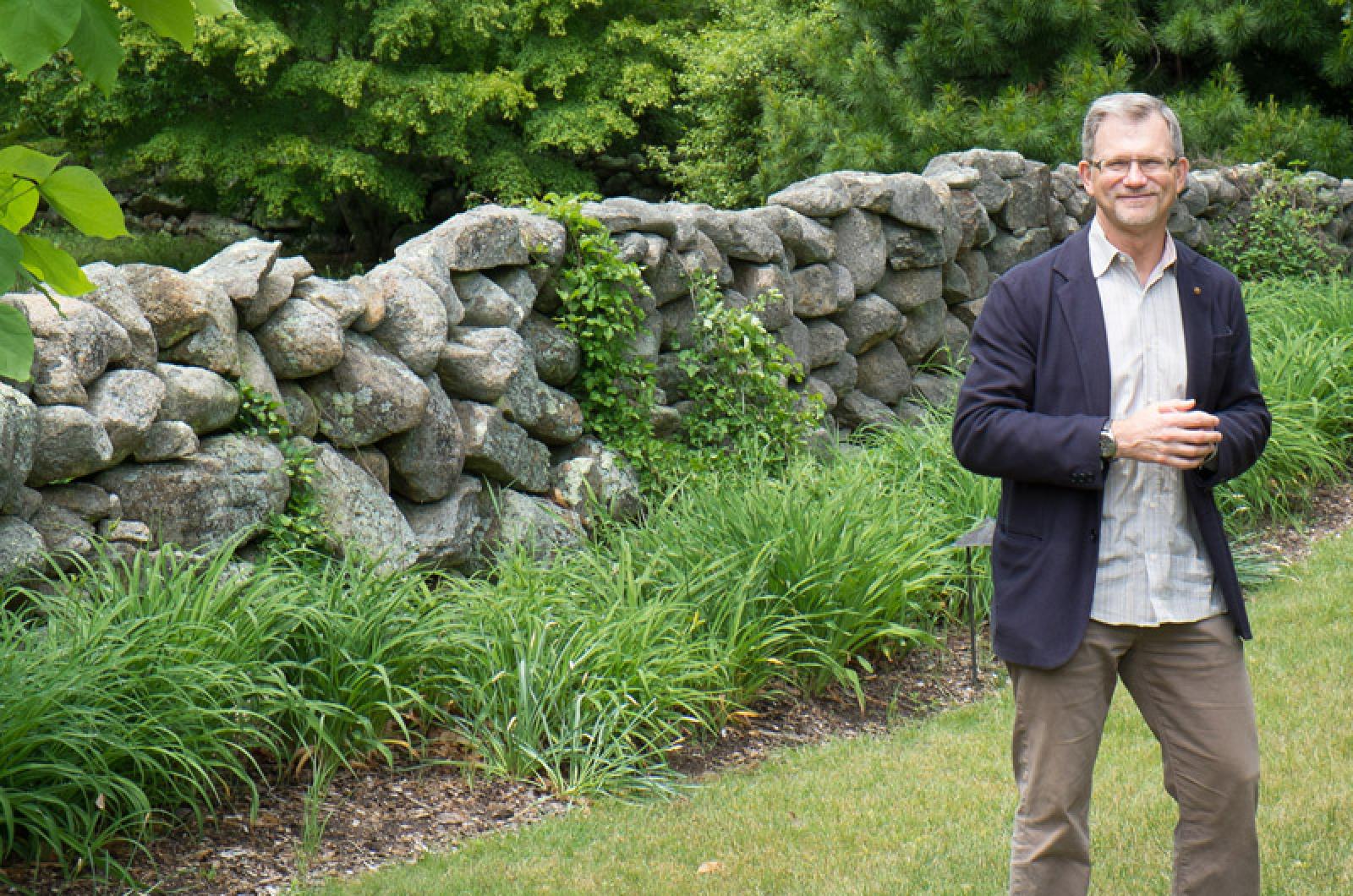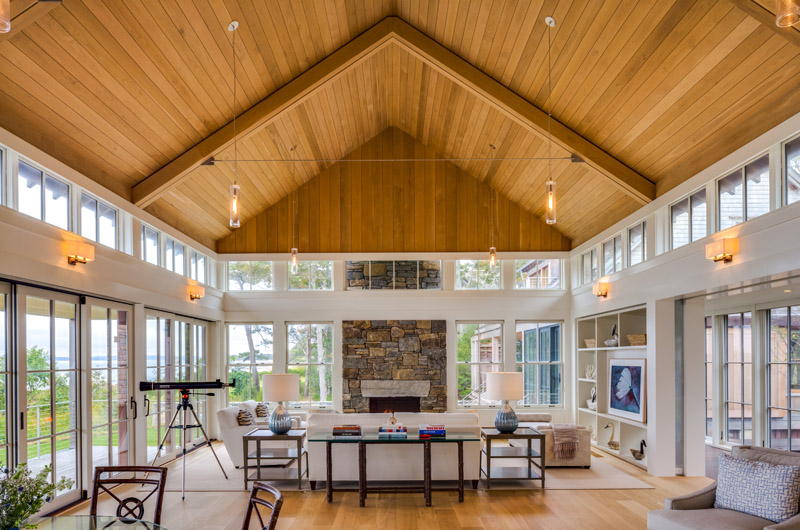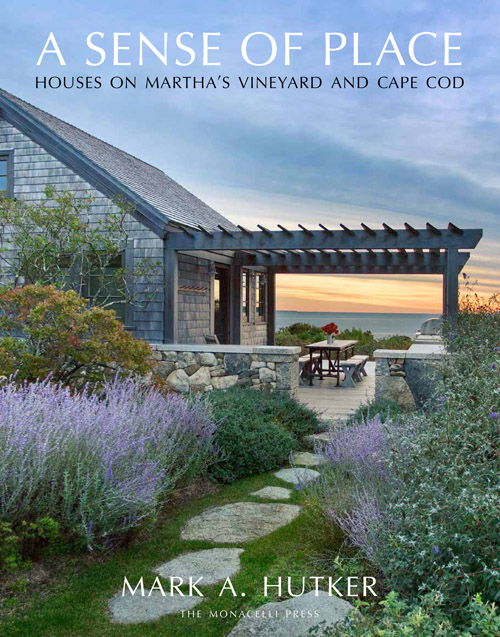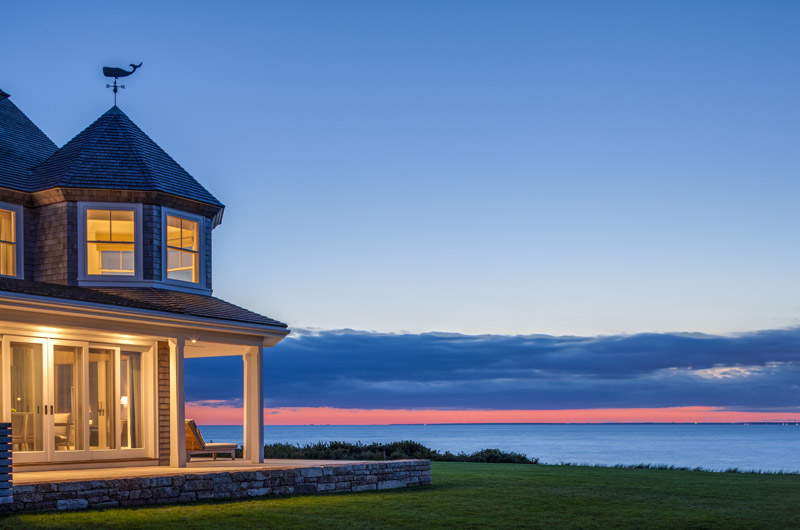To be asked to describe your ideal day might sound like the opening line of a therapy session, but it’s one that architect Mark A. Hutker uses in his practice too.
“I ask my clients to keep diaries so that I can get to know the things that are important to them,” he said. “It lets me understand what a perfect day in the life of their house looks like.”
Mr. Hutker is the founding principal of the residential architecture firm Hutker Architects, which he grew out of Dunn Brady Associates’ branch office at the Tisbury Marketplace in Vineyard Haven.
“I bought the firm in 1987 and have since grown it to include 36 architects and designers focused solely on the art of residential architecture,” said Mr. Hutker.
He renamed the firm and now runs three offices, one each in Martha’s Vineyard, Falmouth and Boston. His Martha’s Vineyard office occupies the same space it did when he began practicing architecture on the Island 30 years ago. Hutker Architects’ second book, A Sense of Place: Houses on Martha’s Vineyard and Cape Cod, was released this spring. The book features photography of 13 homes on Cape Cod and Martha’s Vineyard as well as essays about each place. On the Vineyard, projects included range from The Grey Barn Farm in Chilmark to a home overlooking the Edgartown Harbor.
“Our goal is to create the kind of structures that the community will want to defend in the future,” said Mr. Hutker. To achieve this, he draws inspiration from historic homes on the Island. He studies existing structures whose practical construction and durability have allowed them to stand the test of time.
His work borrows from up-Island agrarian buildings such as barns and sheds that were built out of necessity from simple materials, decades ago.
“Simple Island families of yesteryear were interested in buildings that required the lowest maintenance because they were more interested in farming and staying alive than maintaining their homes,” he said. “So there are a lot of lessons to be learned about craft and how to build for all of us who practice residential architecture today.”
Firm principal Philip Regan also celebrates what can be learned from structures that have endured centuries of foul weather and still stand, unwavering, on the Island.
“If they are still here, we look at the ethic behind them, and how they deal with the climate out here. We get everything — high humidity, sideways salty rain, snow, heat and sun. And there aren’t a whole lot of building materials that are going to stand up to all of that,” he said. “So we ask ourselves, what did they do right and what did they do wrong?”
Hutker architects celebrated the release of A Sense of Place with a book signing in Falmouth where Mr. Hutker reflected on the craft of home building. His Martha’s Vineyard offices are next door to the Gannon and Benjamin boatyard, which he’s seen ceremoniously launch boats year after year. While introducing the book Mr. Hutker suggested that homes should be celebrated similarly, as opposed to their keys simply being handed off to homeowners.
Hutker Architects also considers the future as much as it does the past. A large part of doing this is by getting to know their clients and how they live.
“We are the designers, but they are the folks who will use the home and they have of course lived in homes,” said Mr. Regan. “So we learn from them and they learn from us.”
The firm also takes into account changing family structures.
“As families mature, their sociologies change,” Mr. Hutker said. “Every summer is different. You have kids who are young and need to be next door for when they have nightmares, which is different from when they become teenagers and go to bed late, which is different from having significant others and eventually grandkids. So you need to build a house that accommodates that dynamic over time.”
Mr. Hutker also offers a piece of advice for parents who might want to lure their grown children back home for longer periods of time, and more frequently.
“There is a direct relationship between autonomy and the amount of time your kids will come hang out with you on the Vineyard. If they have a private way to get away they will stay a little longer. If they are always under foot it will probably be less.”
Perhaps he speaks from experience.








Comments
Comment policy »